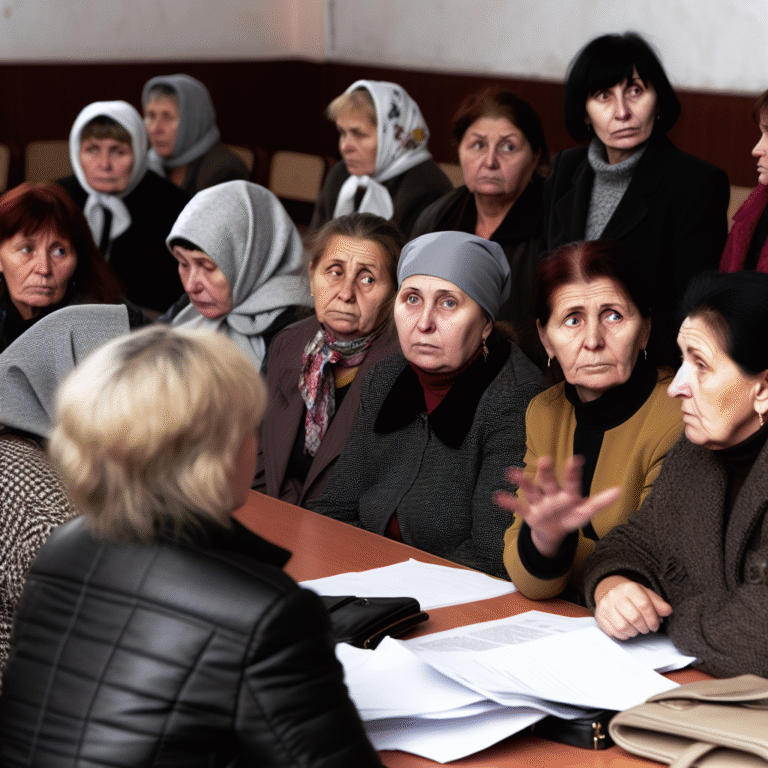Greenland’s Compensation for Involuntary Contraception: A Step Towards Justice
A week and a half ago, the Naalakkersuisut took a significant step in addressing a long-standing issue by allowing women in Greenland to apply for compensation if they experienced involuntary contraception after 1992, the year Greenland assumed responsibility for its health sector.
As of now, 20 women have seized this opportunity, a figure confirmed by the Department for Justice and Equality. Naaja H. Nathanielsen, the Minister for Justice, indicated that eligible women could receive compensation of up to DKK 300,000. “This amount aligns with precedents from other instances where public authorities have committed violations. We believe it’s a fair sum,” she explained.
Recent Cases of Involuntary Contraception
In recent investigations, especially following the troubling “spiral scandal,” it became evident that involuntary contraception affected more women than previously thought. In March 2024, the National Medical Board reported being aware of 15 cases of women who received involuntary contraception post-1991. Alarmingly, 13 of these instances occurred in the context of surgical abortions, and data indicates that from 1993 to 2014, the cases spanned across the country.
KNR previously interviewed several women who experienced involuntary contraception, all of whom underwent the procedure while under anesthesia during surgical abortions.
Funding for Compensation
The previous Naalakkersuisut had allocated DKK 4.5 million to support those affected. Following the announcement from the then Minister of Finance, Erik Jensen, each woman was expected to receive DKK 300,000. However, as the full scope of the situation became clearer, it was revealed that the number of applications would likely exceed the initial estimate of 15 cases, prompting the government to prepare for additional financial needs. “There might also be many who haven’t come forward yet,” Naaja Nathanielsen noted.
Should the compensation fund require additional resources, Nathanielsen expressed readiness to approach the Inatsisartut for more funding, asserting, “It’s imperative that we take responsibility, especially after acknowledging that providing contraception without consent is unacceptable.”
A Personal Story of Trauma
Arnaq Knudsen-Frederiksen, one of the women seeking compensation, reflects on her tumultuous journey. At just 20, she learned in 2002 that she had been fitted with an IUD. “Words fail to convey the overwhelming shock and fear I felt,” she recounted in a previous interview with KNR. This procedure was conducted during a surgical abortion at the hands of a Danish doctor when she was only 15.
For Arnaq, the physical ramifications have been severe; she has endured chronic abdominal pain and infertility, leaving her disillusioned by the healthcare system. While compensation cannot erase her trauma, she acknowledges, “It is still better than nothing. It’s a step that shows they recognize our suffering.”
Struggling Trust in Healthcare
Despite the compensation scheme’s development, Arnaq finds it challenging to fully trust the healthcare system. “Some days, I appreciate the care I receive. But part of me is haunted by the damage done to my body,” she lamented.
Attempts to trace her medical records have proven futile, as the hospital in Paamiut no longer possesses them. This issue of missing records is not isolated. The National Medical Examiner’s Office has indicated that various medical documents have been lost or destroyed over time, complicating efforts for those seeking justice.
Naaja Nathanielsen acknowledges these challenges: “Many records have been mishandled, and that should not penalize the women involved. It’s crucial that victims aren’t burdened by inadequate documentation.”
A Trustworthy Process Ahead
Emphasizing the integrity of the compensation process, Nathanielsen assured that applicants would not face undue scrutiny: “We must believe that those seeking compensation have experienced genuine violations. While errors aren’t impossible, we feel confident moving forward.”
For the first time, the Naalakkersuisut is implementing a compensation framework, entrusting an independent group of experts—comprising lawyers and healthcare professionals—to oversee the claims. “We’ve opted for this method to build trust, ensuring no political interference and protecting individuals’ privacy,” Nathanielsen stated.
Eligible women can submit their compensation applications until December 31, 2025, with decisions expected to be announced by February 1, 2026, as noted on the National Polishing Association’s website. This initiative is a crucial move towards acknowledging and addressing the harms endured by these women, paving the way for accountability and healing.
